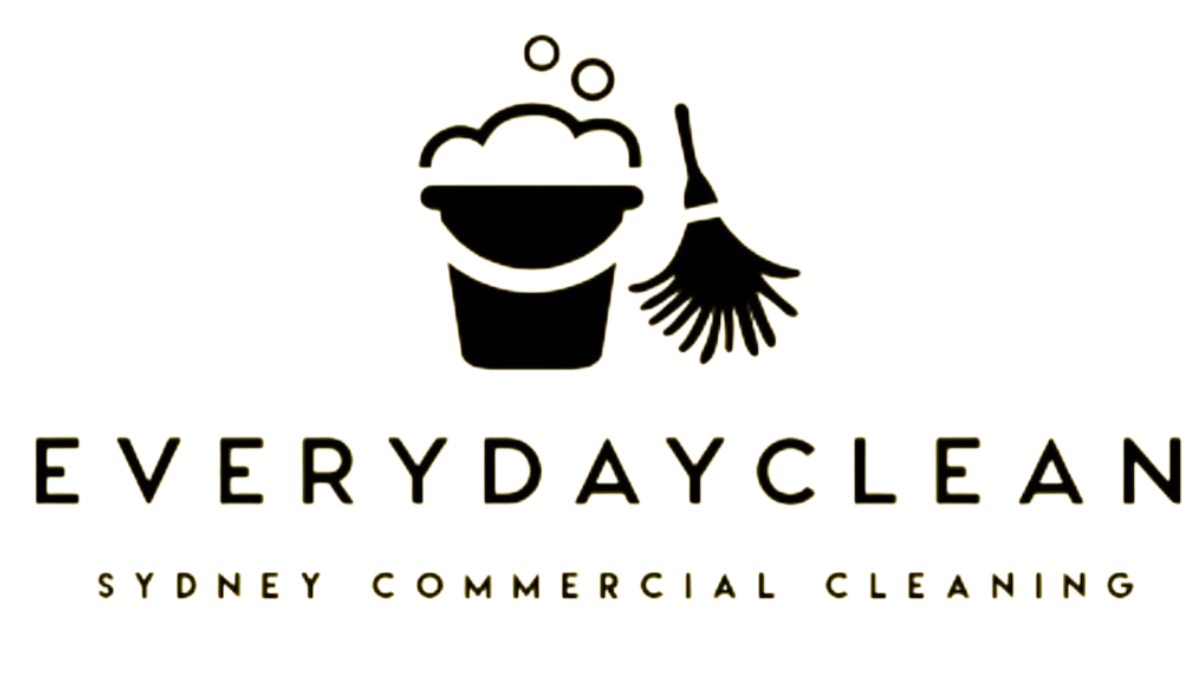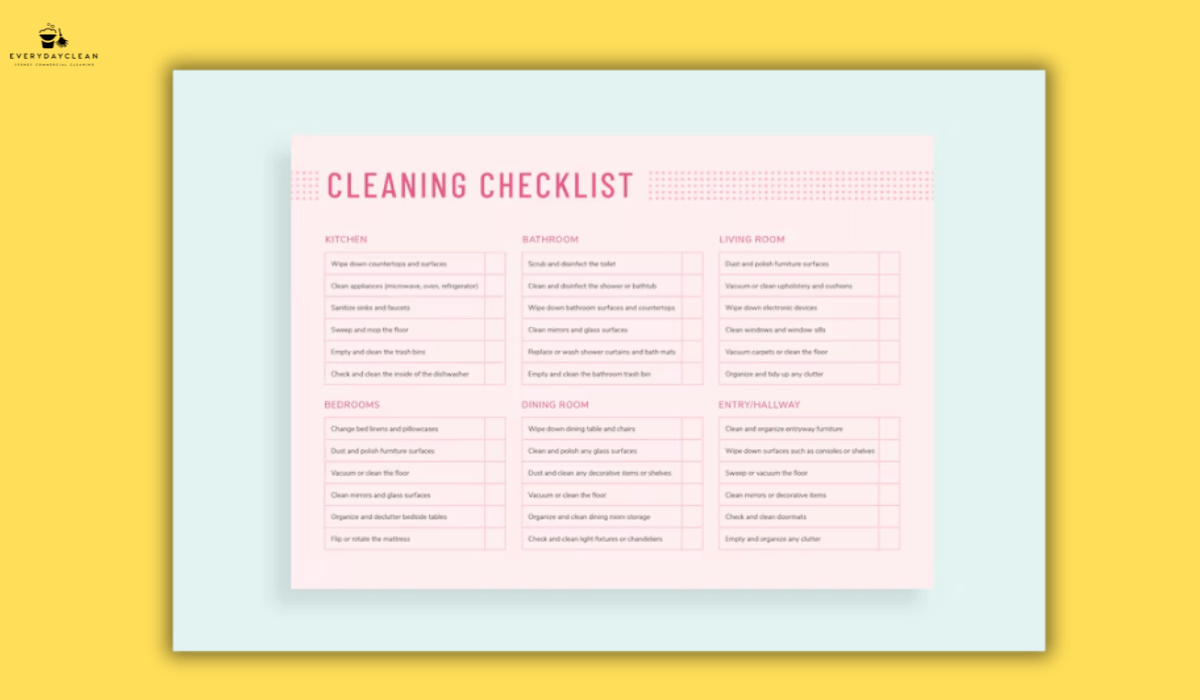NDIS Window Cleaning: 7 Essential Services for 2025
NDIS window cleaning is a specialised cleaning service provided to participants under the National Disability Insurance Scheme to ensure homes remain bright, hygienic, and accessible. It focuses on cleaning glass, frames, and flyscreens safely for individuals who may not be able to reach or maintain these areas independently. Delivered by trained professionals, this service supports participants, carers, and plan managers in maintaining visibility, safety, and comfort across homes or supported properties.
This guide outlines the seven essential NDIS window cleaning services available in Sydney, explains how bookings are managed under different plan types, and details what participants can expect during a typical appointment.
NDIS Window Cleaning Services: What’s Included?
Before exploring the service list, it’s important to note that window cleaning under the NDIS is typically part of “Assistance with Daily Living” or home maintenance support. Cleaners may be NDIS-registered or non-registered, depending on plan flexibility.
Below are the most requested window cleaning services approved within NDIS plans and offered by providers such as Everyday Clean.
1. Internal Window Cleaning for Accessibility
Internal window washing involves the removal of dirt, dust, fingerprints, and smudges from windows inside the home. For participants with mobility challenges, reaching these surfaces independently can pose safety risks. Professional cleaners use gentle, streak-free products and accessible tools to ensure every window is cleaned without disrupting the home environment.
2. External Window Cleaning (Low-Risk Access)
Exterior window cleaning is essential for homes affected by traffic pollution, pollen, and weather-related debris. For NDIS participants, maintaining clear external windows improves light, visibility, and well-being. Services typically include glass washing, frame wiping, and flyscreen removal. In single-storey or safe-access properties, cleaners use extension poles and ground-based systems to avoid the need for ladders or lift equipment.
3. Track and Frame Cleaning
Cleaners don’t just clean the glass—they also wipe or vacuum window sills, aluminium frames, and sliding tracks. These areas accumulate dust and grime, affecting both cleanliness and window operation. Track cleaning is especially important in homes where participants rely on natural ventilation and struggle to open heavy windows unaided.
4. Flyscreen Removal and Reinstallation
Flyscreens must be removed for complete window access. NDIS-friendly cleaners safely uninstall screens, clean both mesh and frame, then reinstall them securely. This service is often bundled with routine cleans or booked during seasonal deep cleans (e.g., end of winter or before summer).
5. Window Cleaning in Shared or Supported Living Settings
For participants living in shared accommodation or NDIS-supported housing, window cleaning may cover common areas and bedrooms. Professional cleaners coordinate with carers or support workers to work around schedules, ensure privacy, and comply with property guidelines.
6. Eco-Friendly and Fragrance-Free Cleaning Products
NDIS environments sometimes require low-irritant or chemical-free cleaning options, especially for participants with allergies or sensory sensitivity. Everyday Clean offers eco-safe products with no lingering odours, supporting comfort during and after the service.
7. Ongoing Scheduled Cleaning Support
NDIS window cleaning isn’t limited to one-off jobs. Participants can schedule weekly, fortnightly, or monthly cleans as part of their broader home cleaning services. These routines help maintain light flow, hygiene, and visibility over time, and can be coordinated with other support activities like domestic assistance or therapy appointments.
For participants looking to combine multiple cleaning tasks, the NDIS Cleaning Service page outlines bundled options across window, carpet, and home hygiene support.
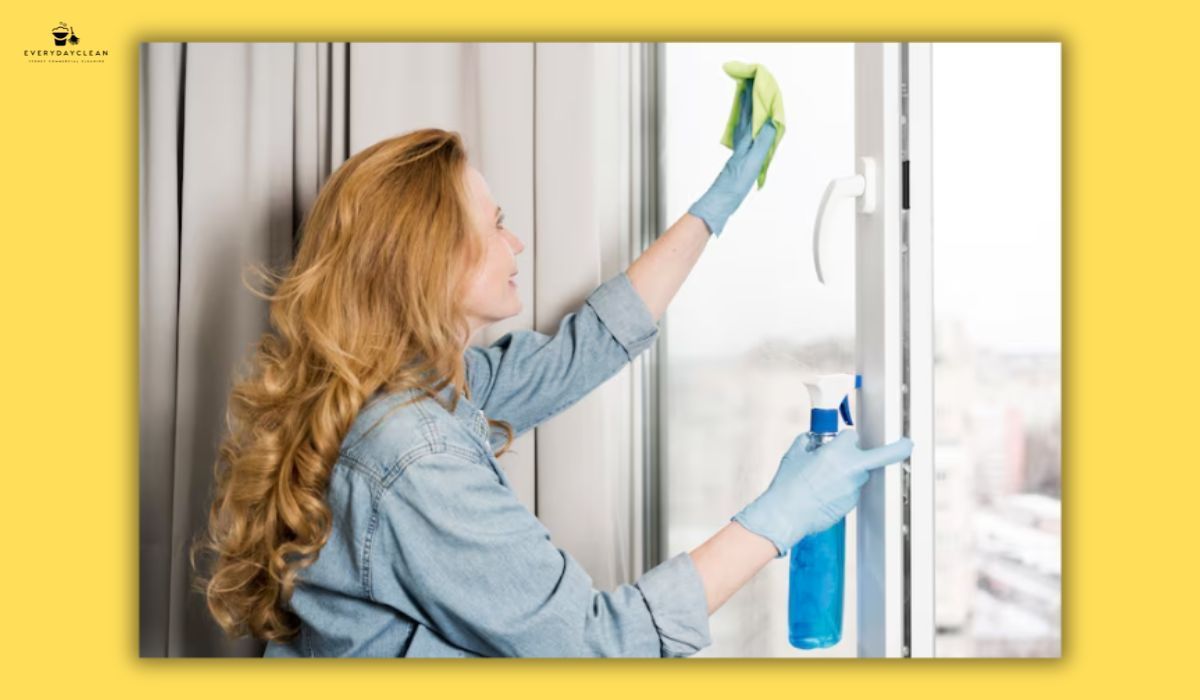
How to Book NDIS Window Cleaning in Sydney
Booking window cleaning services under the NDIS depends on your plan management type. The process varies slightly between self-managed, plan-managed, and NDIA-managed plans.
To make this section actionable and cleaning-focused, here is a step-based booking process:
Step 1: Confirm Eligibility
Before scheduling any window cleaning service under the NDIS, it is essential to verify if your plan covers cleaning-related supports. Most window cleaning falls under the category of “Assistance with Daily Living” or Core Supports, particularly when linked to maintaining safe and hygienic living environments. Review your plan documentation, or speak with your NDIS support coordinator or plan manager to confirm what services are permitted. If you are unsure whether external or window-specific cleaning is included, clarify the details to avoid delays or rejected claims. This step ensures that the cleaning provider you choose can tailor services to fit both your cleaning goals and NDIS plan boundaries.
Step 2: Choose a Cleaning Provider
Once eligibility is confirmed, the next step is to select a qualified cleaning provider who understands NDIS participant needs. Participants with self-managed or plan-managed funding can typically choose any professional cleaner, including non-registered providers, provided they meet safety and service standards. However, if the plan is agency-managed (NDIA-managed), the provider must be officially registered with the NDIS. When selecting a provider, prioritise companies experienced in disability cleaning services—such as Everyday Clean—which train their teams in respectful, accessible, and low-impact cleaning procedures. This step is not just about compliance, but about working with cleaners who understand the importance of dignity, accessibility, and support in every appointment.
Step 3: Request a Cleaning Quote
After choosing a provider, participants or carers should request a written quote that outlines the service scope. This includes cleaning frequency (e.g., fortnightly, monthly), areas to be cleaned (such as internal windows, external windows, or flyscreens), property access notes, and any special instructions. For example, homes with mobility aids, pets, or multiple participants may require additional coordination. Providing your NDIS number (if needed), plan type, and payment method (self-managed vs plan-managed) will help the provider prepare a quote that aligns with funding requirements. A clear and detailed quote supports both compliance and convenience when submitting the service request to your plan manager or NDIA.
Participants exploring other services, such as carpet or track cleaning, may also benefit from reading this guide on
NDIS carpet cleaning, which explains how to integrate multiple services into a streamlined support plan.
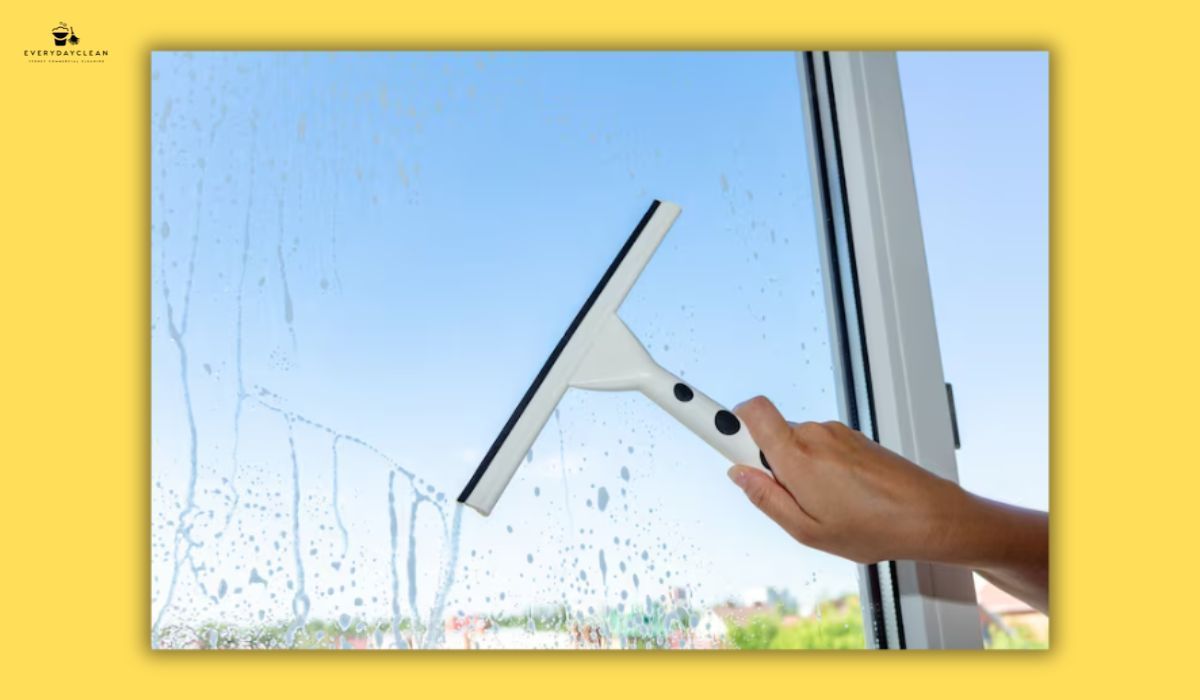
Step 4: Confirm and Schedule
Once the quote is reviewed and approved, the provider will schedule a time that works for the participant and/or their carer. If the property has access constraints (e.g., no steps, only ground-level cleaning), these details will be taken into account when assigning a team. Cleaners may also work around therapy appointments or support staff schedules to minimise disruption. During this stage, recurring cleans—such as monthly or seasonal visits—can be arranged to ensure consistency in cleanliness and funding usage. This step is particularly helpful for participants with sensory needs or mobility challenges, as it avoids the stress of re-booking each time and ensures continuity of service.
Step 5: Payment and Reporting
NDIS billing varies depending on the plan type. Self-managed participants typically receive an invoice after each service, which they submit through the NDIS portal for reimbursement. Plan-managed participants have invoices sent directly to their plan manager, who handles claim processing. For NDIA-managed plans, the provider must lodge the claim through the myplace portal. In all cases, accurate records of the service (including time, cost, and tasks completed) are critical for NDIS compliance. Many providers also offer optional service reports or completion notes, which support recordkeeping and allow carers or coordinators to track cleaning outcomes over time. This transparency builds trust and ensures long-term service alignment with participant goals.
What to Expect During a Window Cleaning Appointment
Each appointment is structured around efficiency, safety, and respectful service delivery. Cleaners arrive with all equipment and products, and follow these general steps:
- Confirm the scope of service with the participant or carer
- Use ground-based or non-invasive equipment for safety
- Remove screens if necessary and clean window tracks
- Wash glass, sills, and frames
- Reinstall screens and dry-check each surface
- Conduct a walkthrough or provide a completion note
Participants should expect minimal disruption and clear communication before and after each clean.
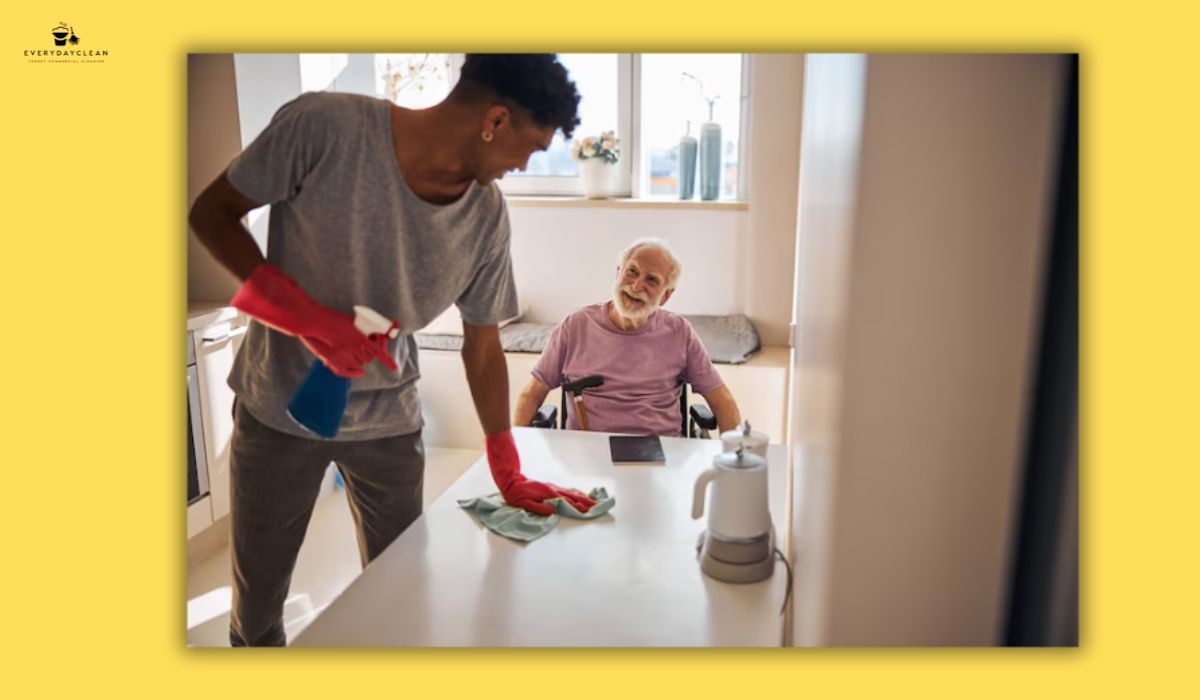
FAQs: NDIS Window Cleaning Services
Before arranging a service, participants and carers often have specific questions related to access, claims, and scope. Below is a short transition before the individual questions to comply with your format request:
The following answers address common concerns raised by participants or plan managers when considering NDIS-supported window cleaning.
Can window cleaning be claimed through NDIS?
Yes. Window cleaning may be claimed under "Core Supports" or "Assistance with Daily Living" if it aligns with the participant's needs and their NDIS goals. Plan- and self-managed participants can use any provider, while agency-managed participants must use NDIS-registered cleaners. It is important that the service supports functional living and hygiene outcomes.
How often can participants book window cleaning?
This depends on the plan, budgets, and home needs. Many participants book monthly or seasonal cleans, while others include window cleaning as part of broader fortnightly home maintenance. The frequency should be practical and justifiable under the plan, particularly if the participant has mobility or sensory challenges that make self-cleaning unsafe.
Are cleaners trained to work in NDIS homes?
Reputable providers like Everyday Clean train their cleaners in respectful, NDIS-appropriate practices. This includes clear communication with carers, safe entry protocols, use of low-irritant products, and flexible service delivery. While formal disability training isn’t mandatory, many NDIS-experienced cleaners understand how to adapt services to individual participant needs.
Can window cleaning be bundled with other home cleaning tasks?
Yes. Most NDIS participants bundle window cleaning with other domestic support services like:
- General surface cleaning
- Mopping and vacuuming
- Bathroom and kitchen hygiene
- Balcony or outdoor cleaning
Bundling services maximises plan efficiency and reduces the need for multiple appointments or providers.
Everyday Clean: NDIS Window Cleaning with Professional Clarity
Everyday Clean supports NDIS participants across Sydney with safe, respectful, and efficient window cleaning services. From single-storey homes to supported housing, all services are delivered by qualified professionals who understand what makes a space not only clean, but functional and accessible.
Ready to Schedule NDIS Window Cleaning in Sydney?
Clean, streak-free windows can make a home feel brighter, safer, and more inviting—especially for NDIS participants who rely on well-maintained spaces to support independence and daily comfort. Everyday Clean delivers professional, respectful, and NDIS-aligned window cleaning across Sydney, designed for all home types and accessibility needs.
If you’re ready to bring more light into your home, contact the Everyday Clean team today to arrange a quote or ongoing service schedule. Every booking is managed with care, efficiency, and an understanding of what matters most—your comfort and peace of mind.
Author: Everyday Clean Content Team
Everyday Clean is Sydney’s trusted provider of commercial and NDIS-aligned cleaning services, including window cleaning, end-of-lease support, and regular home cleaning. Our cleaners are fully insured, respectful, and trained to deliver quality cleaning outcomes across homes, shared spaces, and supported properties.
